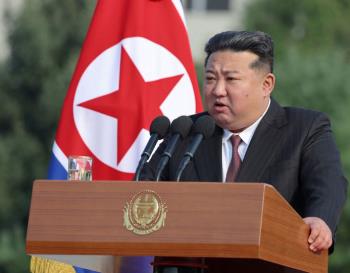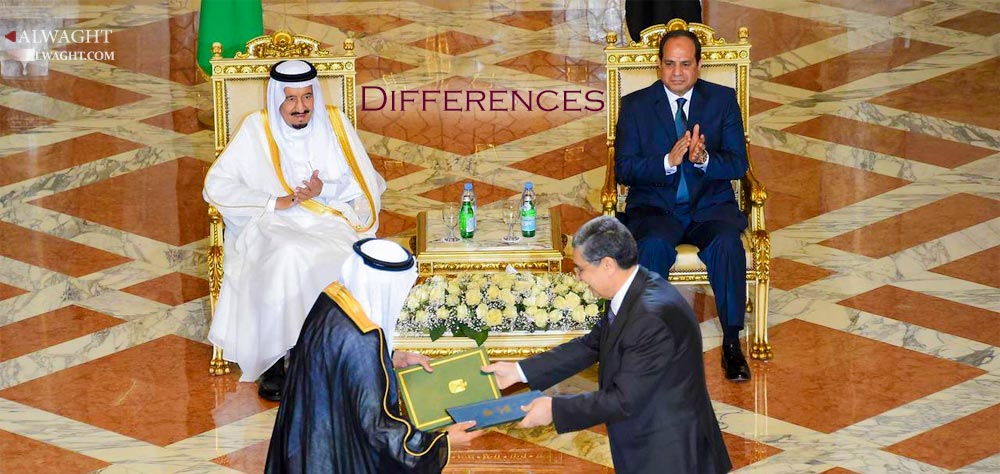Alwaght- Relations between Saudi Arabia and Egypt, as two important and powerful countries in the Arab world, have had their ups and downs in the aftermath of the Arab developments and changes. Abdel Fattah el-Sisi was elected as president in Egypt back in 2014, and Salman al-Saud came to power in Saudi Arabia, afterwards, with the occurrence of certain events, including Egyptian President Hosni Mubarak's decision to assign two islands of Tiran and Sanafir to Saudi Arabia, speculations about a rapprochement between the two sides strengthened. But what has happened in the recent months suggests that the gap between these two influential powers in the Arab world, is in fact widening.
According to experts, there are disagreements about some regional issues between Egypt and Saudi Arabia. Also, events such as the Grozny conference -where al-Azhar stated that the Wahhabi groups in Saudi Arabia originated from Sunni groups- and the meeting between the Foreign Ministers of the Islamic Republic of Iran and Egypt on the sidelines of the UN meetings, angered Riyadh from Cairo.
Meanwhile, in Egyptian Foreign Minister Sameh Shoukry’s meeting with members of the press in Egypt, he stressed that Egypt as a sovereign state has its own opinions on regional developments and issues. He added that his country disagrees with Saudi Arabia regarding the issue of the Syrian crisis. While Riyadh is insisting on the need to change the political system, or at least the removal of Bashar al-Assad, Cairo does not support such policy.
Given such remarks by Egyptian Foreign Minister, it can be concluded that there are significant differences of opinions on the Syrian crisis between Cairo and Riyadh. These Differences arise from Egypt’s different understanding of the crisis. Egypt believes if the current government in Syria gets set aside, terrorist and extremist groups will take power, which will be an obvious threat for the security of the region and even the world. While Egyptian officials support the dialogue between the Syrian governments with the moderate opposition groups -not terrorist groups- they have also declared that Syrian public itself should be able to decide for the future of the political system of Syria.
Another part of the issues and tensions that have recently arisen between Egypt and Saudi Arabia originated from the Conference of Grozny and its consequences. Grozny conference was attended by 200 Sunni people, and Wahhabi Sunnis were excluded, attendance of four of the prominent Egyptian religious figures in the conference (Dr. Sheikh Ahmed al-Tayeb, Mufti of Egypt Sheikh Shawki Ibrahim Allam, Egyptian presidential adviser in Islamic affairs and former Mufti Ali Gomaa Usama al-Azhari) led to criticism from the Saudi Wahhabis towards al-Azhar. These criticisms seem to have repercussions on the relations between Cairo and Riyadh. They also seem to have affected the financial support of Abdel Fattah el-Sisi from Saudi Arabia.
Regarding this subject, Saudi writer, Muhammad al-Shaikh, declared the following about the Grozny Conference: “Tayeb’s participation at the Grozny conference that dismissed Saudi Arabia from Sunnism will force us to change our behavior with Egypt. Our country is more important, and [President Abdel Fattah al-] Sisi’s Egypt shall go to hell.”
Other symptoms of the disputes among these two countries, include reaching a stalemate over Egyptian and Saudi Arabian economic cooperations. In Salman of Saudi Arabia’s visit from Cairo, both sides were speaking of economic projects that have not been implemented. There is not any news of the construction of the Salman’s bridge over the Gulf of Aqaba, also, there is not any news regarding the construction of a free trade zone that was going to be established in Sinai. Egyptian government’s actions in determining the state border with the Saudis and assigning two islands of Tiran and Sanafir to Saudi Arabia, faced opposition from the parliament, and was not approved. The country's judiciary has also declared that this assignment is invalid.
The latest manifestation of the growing tensions between Cairo and Riyadh goes back to the recent meeting that was held between Mohammad Javad Zarif, the Iranian foreign minister and Sameh Shoukry, the foreign minister of Egypt. The two sides reviewed various issues including the Syrian crisis. This meeting led to Saudis' anger since they were expecting the Egyptian side to act in accordance with Saudi Arabia in regional developments. Whereas according to the Egyptian authorities, it is in the interest of this country to start negotiations with Iran as an effective regional power. Especially because in the wake of developments leading to the June 30 Revolution and the arrival of Abdel Fattah al-Sisi, Iran did not take any position against Egypt and has been impartial with respect to the internal developments of this country. On this basis, it is clear that the meeting is not due to Cairo’s weakness.



























